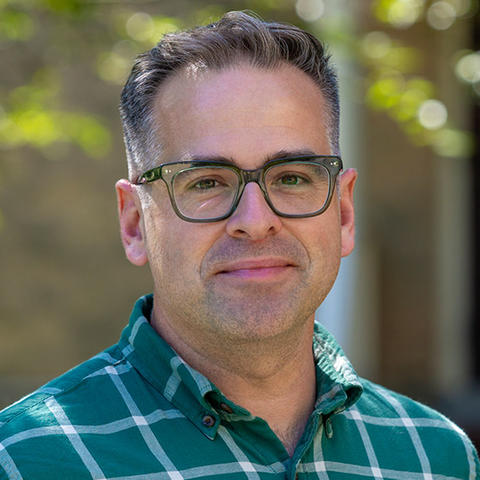Charlotte Scott '21 Receives the 2024 Augustus Taber Murray Fellowship

Details
The fellowship will support Scott as she pursues her PhD in English and comparative literature at the University of North Carolina at Chapel Hill.
Charlotte Scott ’21 is the winner of the 2024 Augustus Taber Murray Fellowship, awarded by the College annually to an alum pursuing doctoral studies in English literature or philology, classics, or German literature or philology. The fellowship will support Scott as she pursues her PhD in English and comparative literature at the University of North Carolina at Chapel Hill.
Scott, who was a double major in comparative literature and psychology at Haverford, plans to study fabulist and magical realist writing by women and queer people while simultaneously analyzing societal narratives. Though her ultimate goal is to become a professor of comparative literature, Scott says she would be equally happy with a career path that will leverage her research to enact positive change.
“I want to understand how narrative in both fictional and real-world contexts can represent marginalized identities and even facilitate social change,” Scott says. “Overall, I intend for my intellectual scholarship to be both accessible and relevant to audiences outside of a rarefied academic setting, and I seek to break down artificial barriers between disciplines.”
For Scott, a native of Lancaster, Pennsylvania, there won’t be much rest between finishing her master of philosophy at Dublin’s Trinity College, where she is currently working on her dissertation, and beginning her PhD program in mid-August. Before immersing herself in graduate studies, she spent nearly two years as a research assistant at the Children’s Hospital of Philadelphia engaged with its Partnering to Achieve School Success Study, which explores new ways of treating children from low-income families with ADHD.
“It’s a twist on the typical approach to training parents about how best to support their kids,” Scott says. “I didn't study clinical psychology as an undergrad — I just never got to it — but mental health is really something I’m passionate about.”
At Haverford, that passion led Scott to co-found the College’s chapter of Active Minds with Althea Sellers ’21, Anna Bacharach ’21, and Rachel Spitzer ’20 in 2018. In leading and managing the chapter’s activities, Scott says she gained the confidence to embrace additional leadership roles and advocate for broader social justice issues. She’s remained engaged since graduating and, even while abroad in Ireland, has continued her involvement with the Philadelphia-based Human Rights Coalition, an organization that advocates for incarcerated people and their families. Scott expects that work to continue in North Carolina and plans to teach students enrolled in the university’s Correctional Education Program.
Scott says her interest in pursuing psychology and literature merged fully when she visited Maud McInerney, the Laurie Ann Levin professor of comparative literature, in her Woodside Cottage office. Though she was initially cautious about writing two separate theses, Scott found the sheer number of books in McInerney’s office enthralling. “When I was in the office trying to declare my minor, I looked around her office at all of her books and said to myself, ‘Oh, I can't just be a minor. I guess I'll have to double major.’”
More importantly, she says, Haverford’s supportive environment gave Scott the space to take intellectual risks and discover interdisciplinary connections between science and literature. That culminated in an exhibition she curated in Lutnick Library that examined the intersection of the work of modernist poets William Carlos Williams and Wallace Stevens and early 20th-century scientific discoveries. Her comparative literature thesis, too, drew on personality psychology research and gender theory to analyze two novels.
Together, Scott’s chosen areas of study feed into the burgeoning field of cognitive literary studies and support her ability to collaborate with researchers in a range of fields. But, as a result, her choice to pursue comparative literature allowed her to skip over making a difficult decision.
“Comparative literature often feels like a secret department at Haverford, but part of the reason I found myself there was I enjoyed Latin, Spanish, and English,” Scott says. “But in a way, [double majoring] was a way of getting around having to make a decision. The joke I always make is that many of my academic choices are ways to avoid picking between things I enjoy."




